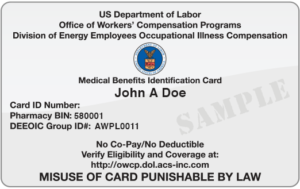Our cultural understanding of mental illness needs considerable improvement. As explained by the American Psychiatric Association, a mental illness is a health condition that involves:
- Substantial changes in a person’s thinking, emotions, or their behavior; and
- Emotional distress or trouble in day-to-day functioning as a result of those changes.
In practice, identifying and defining a mental health issue can be deeply challenging — especially for an untrained person. That being said, when you better understand mental illnesses in general, you will better be able to recognize some of the earliest warning signs that indicate that there is an issue with your elderly loved one.
Understanding Mental Health
You cannot truly understand mental illnesses without understanding mental health. For most people, it is useful to think about mental health in the same way that they think about physical health. For example, imagine that you do not have a knee injury. Your knees are functioning properly, there are no impairments, and your knees allow you to move effectively in the world and to live a normal life. If you sustain a knee injury, it will adversely impact you. By how much? It depends entirely on the severity of your injury — it could be anything from a mild nuisance that requires some moderate treatment to a severe problem that requires emergency medical attention.
Mental health should be thought of in much the same way. A healthy mind is one that is functioning properly, thereby allowing a person to productively engage in activities, to maintain positive relationships, to understand what is going on in their life, and to feel good about themselves. Mental illnesses are similar to that knee injury — a mental health disorder prevents effective functioning. The extent to which it will impact the person depends entirely on the nature and severity of the mental illness.
A Silent Epidemic — Look For Adverse Changes and/or Distress
With some limited exceptions, purely physical injuries and physical illnesses tend to manifest themselves in visible or objectives ways, and may be the basis for receiving EEOICPA and RECA benefits. For instance, no one ever questions whether or not a broken leg actually requires professional medical help — at least not for more than a few seconds. Mental health illnesses and neurological disorders are so challenging because, in many cases, they are difficult to detect. To be clear, difficult is not the same thing as impossible. Quite the contrary, there are things that you can look for to help tell if your elderly loved one is suffering from a mental illness.
As an example, consider one of the most common mental health issues that affect the elderly: depression. Diagnosing depression is hard — often the person suffering from it is not even sure that they have a problem. This is where it is important to remember what a mental illness actually is: a change in thinking, emotions, or behavior that has adverse effects. If you notice adverse changes or signs of distress in your elderly loved one, you should always follow up on the issue. With sensitivity and care, you can help them connect with the resources that they need and deserve.
Who We Serve
Do you have this card?

If you already have this card, then you are already approved to receive no-cost medical benefits! Call us to get started today.
In order to be eligible for EEOICPA/RECA benefits, an individual must have been employed at a covered Department of Energy facility, an approved atomic weapons facility, or at a permitted beryllium vendor. An individual must also have one of the covered conditions as a result of exposure to radiation, beryllium, or silica while employed at an accepted facility. In addition, uranium miners, millers, and ore transporters are eligible for benefits if they develop an illness as a result of exposure to toxic substances (such as radiation, chemicals, solvents, acids, and metals) and worked at a facility covered under RECA. Eligibility requirements vary by location and condition.